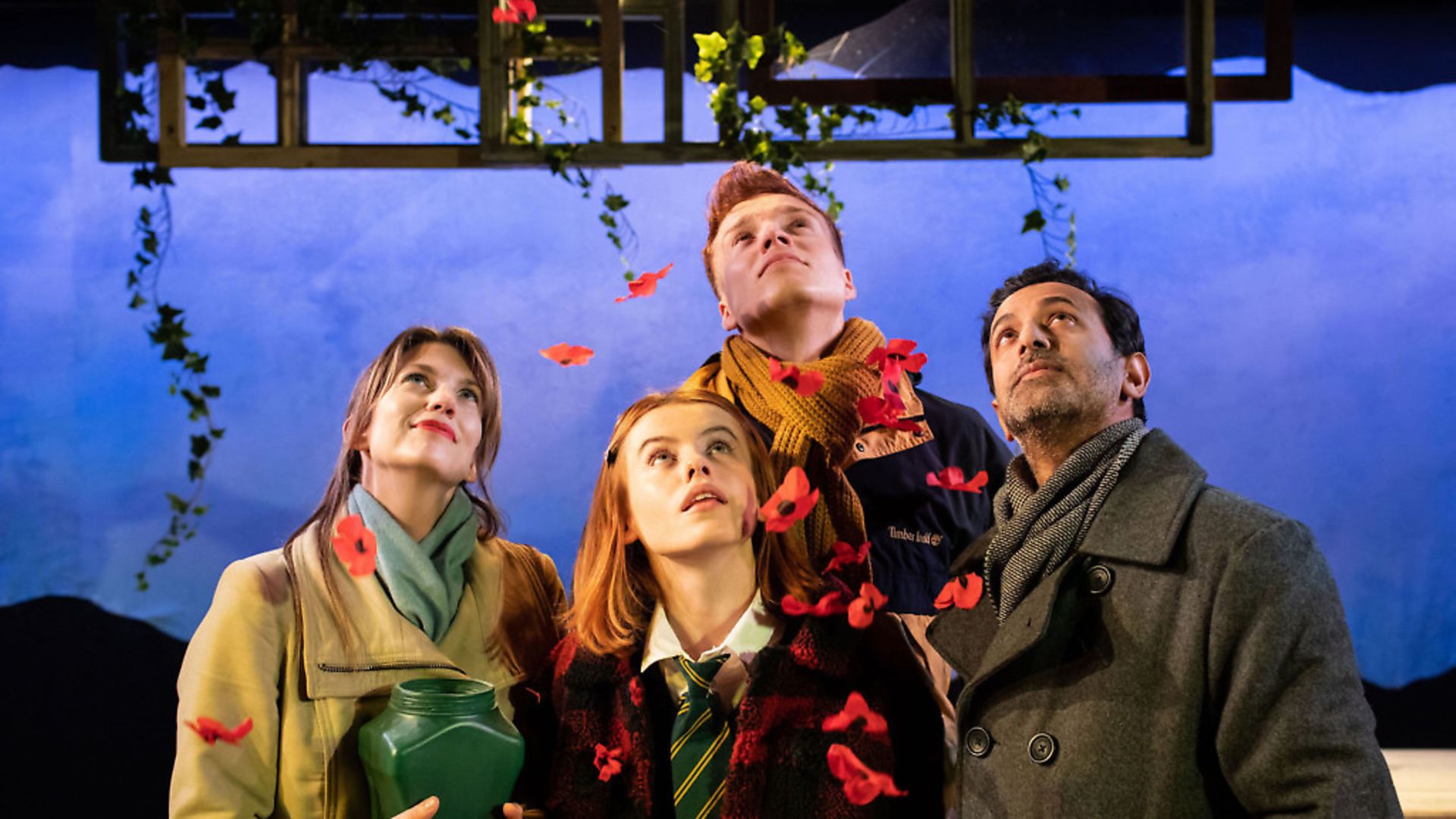
TIM WALKER reviews The Girl Who Fell which is at Trafalgar Studios until November 23.
When I think of the internet, and how the world was before we had it and how it is now, I wonder if Sir Winston Churchill’s verdict on Stanley Baldwin doesn’t also hold good for its inventor, Sir Tim Berners-Lee. “I wish him no ill, but it would have been much better if he had never lived.”
Sarah Rutherford’s new play The Girl Who Fell concerns itself not with what the internet is doing to our politics, but what it’s doing to us as individuals. It’s inspired by a true story of a girl who took her own life after a video of her father chopping her hair off – for posting “inappropriate” selfies – went viral. Depressingly, it appears there’s quite a demand online for what is called “child shaming”.
The piece focuses on the mother of a 15-year-old suicide victim – played by Claire Goose – who’s visited apparently by chance by Navin Chowdhry as a man who turns out to have been driving the car that hit her daughter after she jumped from a bridge. Will Fletcher plays the victim’s boyfriend and Rosie Day her supposed best friend.
It’s peculiarly bleak and joyless theatre, but it’s all too believable. Hannah Price’s production is a wasteland of human misery. All of the characters have been hopelessly overwhelmed by forces more powerful than themselves. Chowdhry’s “gentleman caller” happens to be a hopeless ketamine addict, but the damage it’s done to him and his career seems modest compared to what the internet has done to the others.
There’s a trite line in a self-help book that a well-wisher has given to the mother that says “guilt after suicide is a false accusation”. It of course offers her no consolation whatsoever. Goose powerfully inhabits the role of a woman whose own life to all intents and purposes ended at the same moment her daughter’s did. There’s an unbearably poignant scene in which she lights the candles to a birthday cake on the day that her daughter would have turned 16.
Day is meanwhile brilliant as a youngster who ‘gets’ the internet, but not necessarily the first thing about human interaction and frailty. The cold blankness in her eyes is precisely what I’ve seen in youngsters who have spent too long looking at screens and not enough other human beings. “If I had to choose between having you as a mum and jumping from a bridge, I’d jump from a bridge,” she tells the mother, quite oblivious to the pain she’s causing.
I looked around at the faces of my fellow punters at the end and I wouldn’t say any of them looked like they’d had a great night out, but maybe we’d all learnt a thing or two. The play’s author sums it all up a lot better than I could when she writes in the programme notes that we’re none of us really “digital natives”, but simply “soldiers walking point into unknown territory”.









